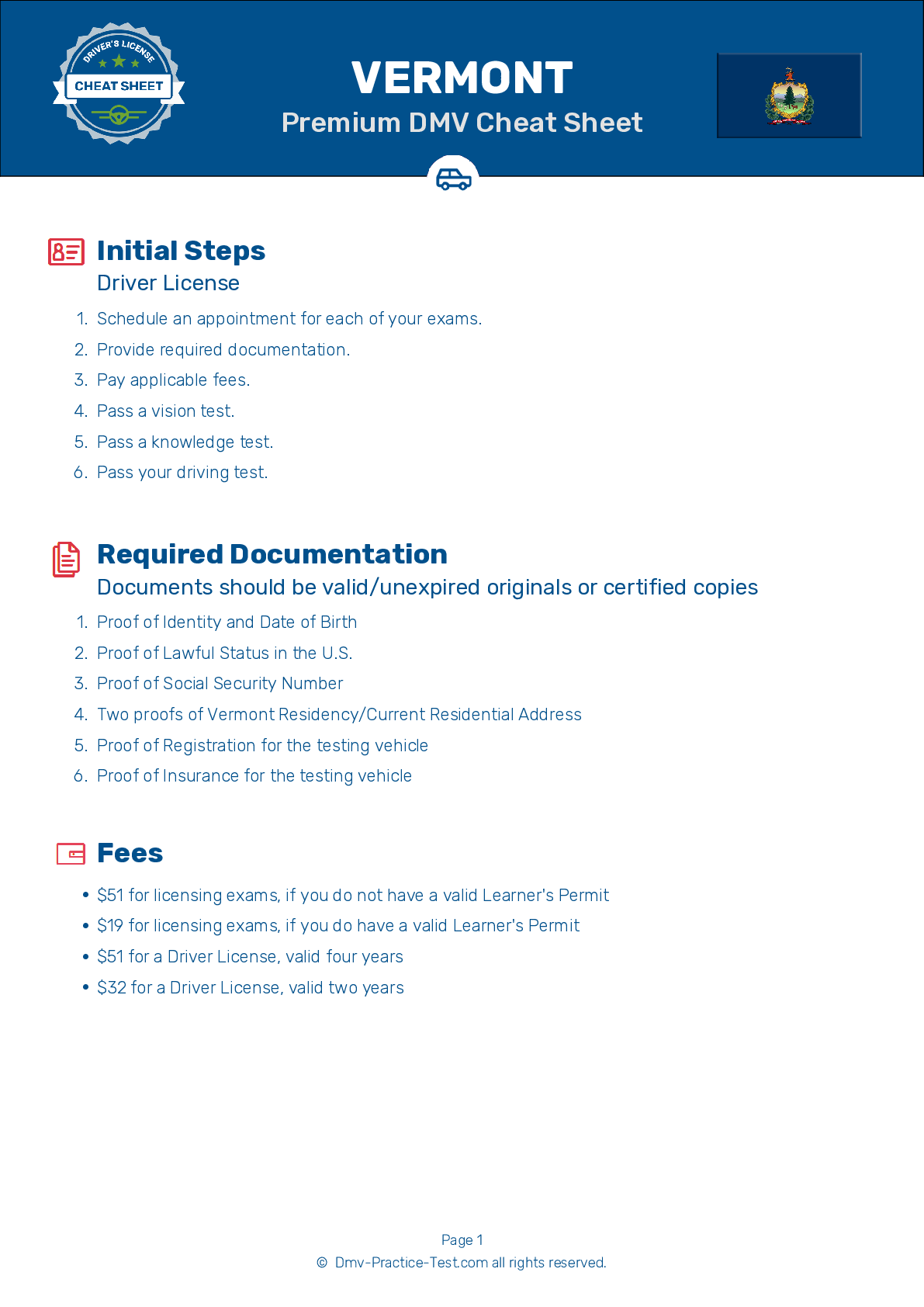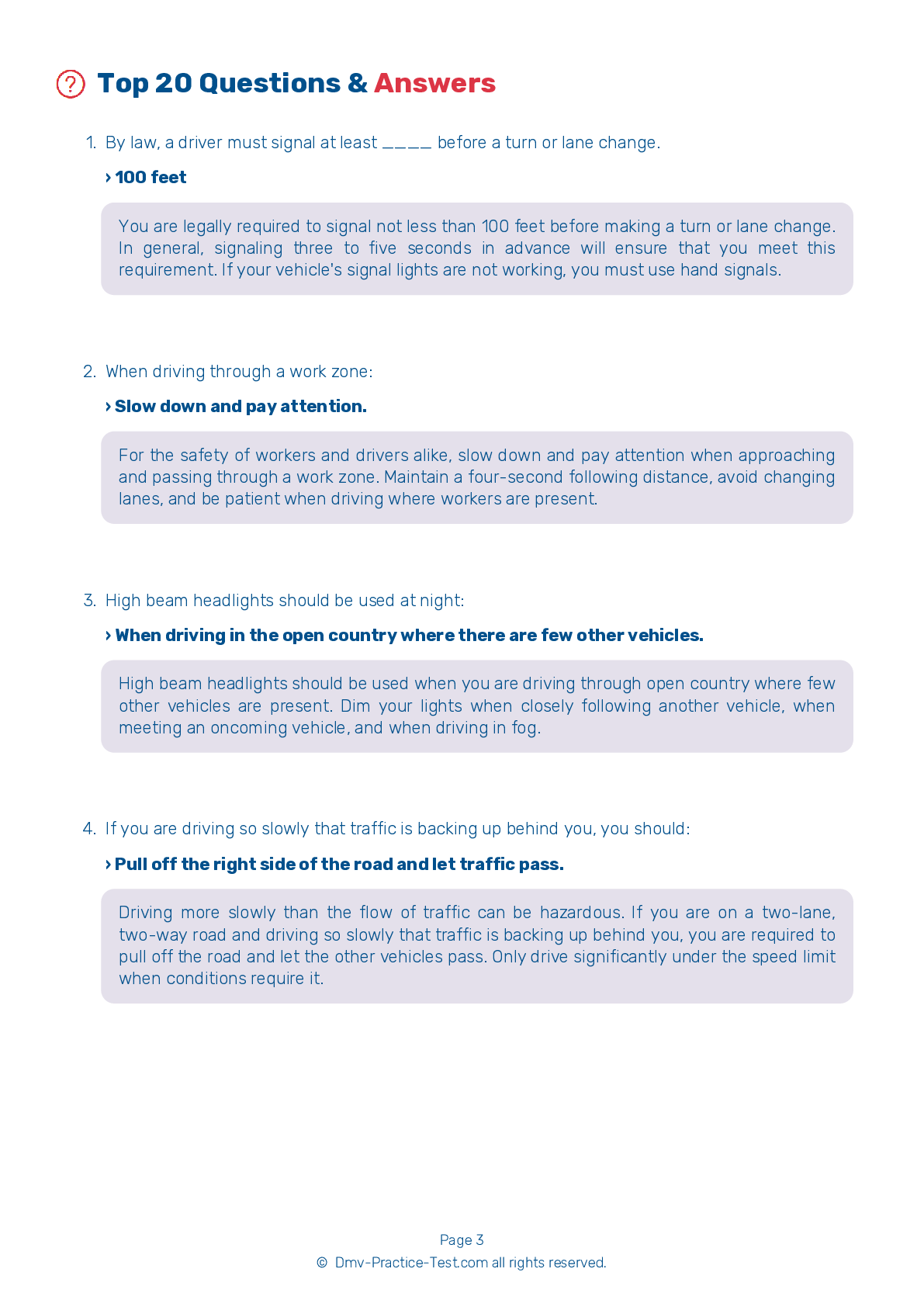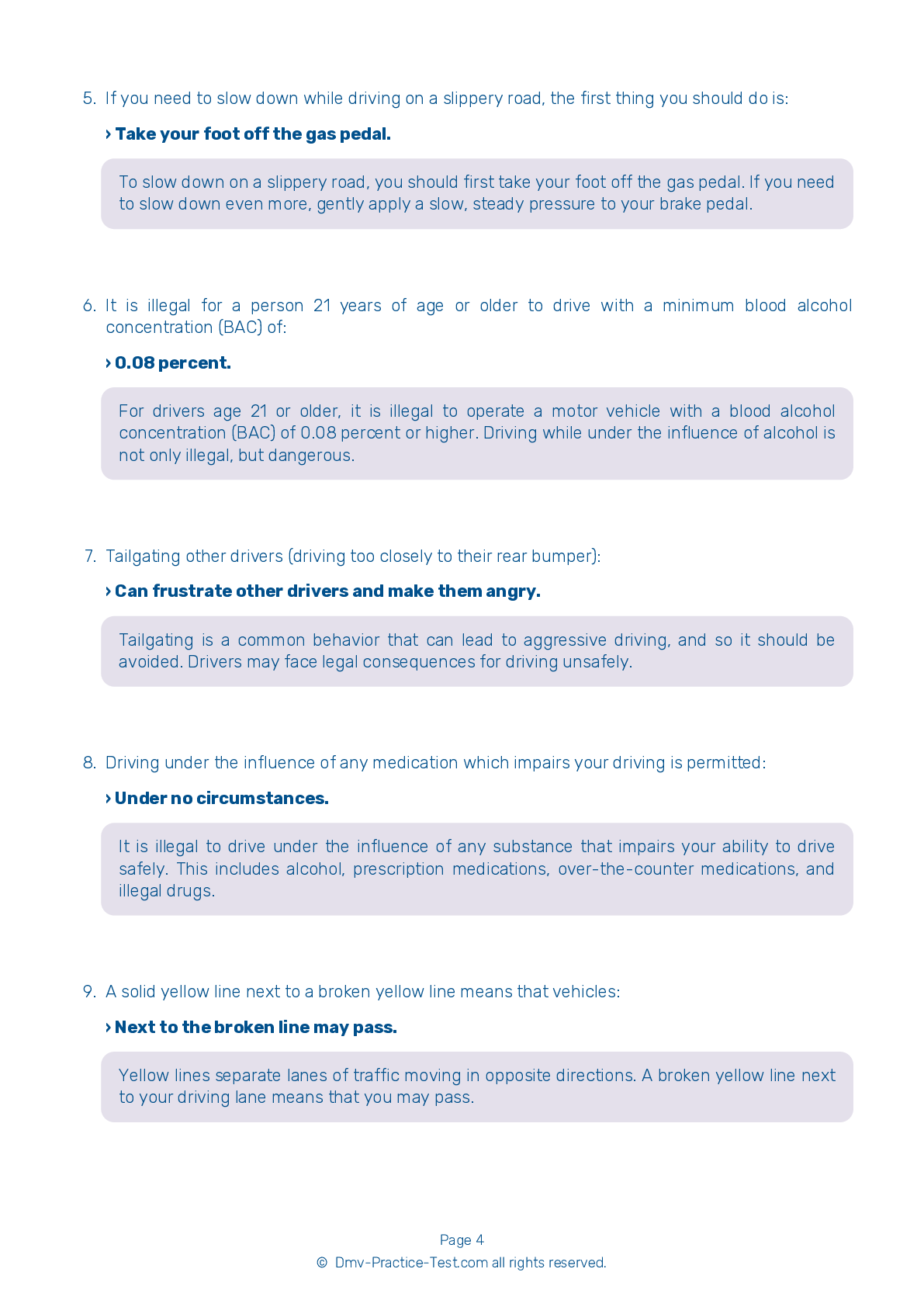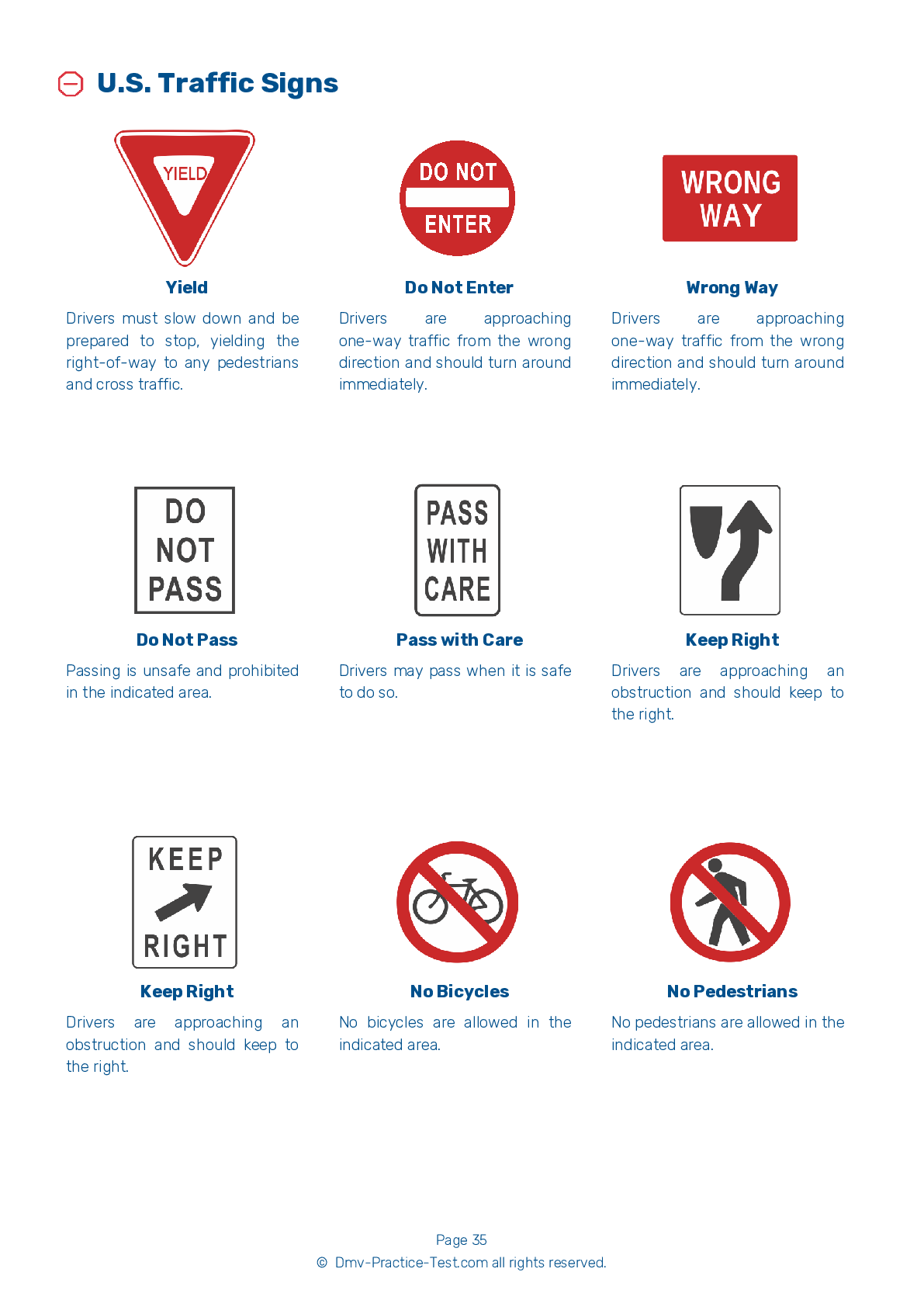FREE Vermont DMV Practice Test #20 Page 3 of 3
The Vermont DMV practise examinations have been updated for January 2026. It includes questions based on the Vermont Driver Handbook's most significant traffic signals and legislation for 2026. Use actual questions that are very similar (often identical!) to the DMV driving permit test and driver's licence exam to study for the DMV driving permit test and driver's licence exam.
On the practise exam, each question gets a tip and explanation to help you remember the concepts. The written component of the official Vermont DMV test will include questions about traffic rules, traffic signs, and driving statutes, as well as knowledge from the Driver Handbook.
To obtain a passing grade, you must correctly answer 16 of the 20 questions. Use the practise exam provided by the Vermont Department of Motor Vehicles to help you prepare for your instruction permit or driver's licence.
The DMV exam is available in several languages.
Using any kind of testing assistance will result in an automatic fail, and the DMV may take additional action against your driver's licence, so stay away from it.
14 . You may cross double solid yellow lines:
Double solid lines indicate that you may not pass or change lanes. You cannot cross the lines unless it is to turn left to enter or exit a highway, to turn into or from a driveway, or to make a U-turn (where permitted).
15 . Stop lines are solid white lines painted across traffic lanes:
Stop lines are solid white lines painted across traffic lanes at intersections and pedestrian crosswalks. They indicate the exact location at which approaching drivers must stop.
16 . A red arrow displayed on a traffic light means that:
Unless a posted sign indicates otherwise, a traffic signal displaying a red arrow means that drivers must come to a full stop and remain stopped until a green light or green arrow appears.
17 . Distracted driving is:
Distracted driving is extremely risky behavior that puts not only you and your passengers in danger, but also endangers pedestrians, bicyclists, and other motorists sharing the road. Focused attention on driving helps to prevent crashes.
18 . If two vehicles arrive to an uncontrolled intersection at the same time:
If two vehicles arrive at the same time to an uncontrolled intersection, the driver on the left must yield to the driver on the right. The driver on the left may then proceed when it is safe to do so.
19 . After stopping for a school bus that is unloading children:
After stopping for a school bus that has its stop arm extended and its lights flashing, watch for children walking along the side of the road. You should always drive with caution when driving near children.
20 . If you are stopped by a police officer, you should:
If you are stopped by the police, keep your hands on the wheel and ask any passengers to keep their hands in view as well. You should remain in the vehicle unless the police officer asks you to get out. Wait until the officer asks you to retrieve your driver license, registration, and insurance cards.
2026 Vermont | Frequently Asked Questions
1. Not checking mirrors and blind spots before changing lanes or turning.
2. Speeding or driving too slowly for the conditions or posted speed limit.
3. Not coming to a complete stop at stop signs or red lights.
4. Incorrect signalling or not signalling at all.
5. Poor parking, especially parallel parking.
Remember, practice makes perfect, so take time to hone your skills.



